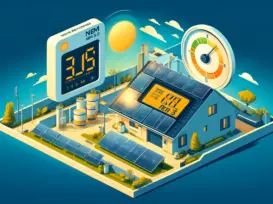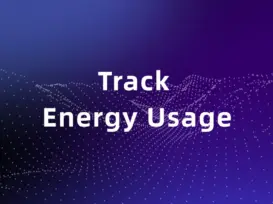Grus Home Energy - solar energy
Embracing the Sun: How Solar Energy is Powering a Sustainable Future
Embracing the Sun: How Solar Energy is Powering a Sustainable Future
Solar energy has ascended as a cornerstone in the pursuit of a sustainable energy future. As a clean, renewable resource, it offers an inexhaustible supply of power, challenging traditional fossil-fuel-based energy systems and promising to reshape our energy landscape. The relentless expansion of solar technology is not just an environmental imperative but also an economic one, with potential for significant job creation and energy independence.
Harnessing the sun’s energy is accomplished through solar panels, which are composed of many individual solar cells made of semiconducting materials that convert sunlight directly into electricity. This process is known as the photovoltaic effect. Over the years, advancements in photovoltaic technology have led to increased efficiency and lower costs, making solar energy more accessible than ever before.
The widespread adoption of solar power has been propelled by significant incentives from governments worldwide. Tax credits, rebates, and feed-in tariffs have been effective in encouraging the deployment of solar installations both in residential areas and on an industrial scale. Moreover, the community solar projects have enabled those who cannot install their own solar panels to benefit from solar energy, further expanding its reach.
One of the most compelling aspects of solar energy is its versatility. Solar power systems can range from small-scale rooftop installations to massive solar farms that feed electricity into the grid, serving the needs of individual households, commercial establishments, and even entire communities. Off-grid solar power also provides a viable solution for remote locations where traditional power grids are either unavailable or too costly to extend.
The environmental benefits of solar energy are equally impressive. Unlike fossil fuels, solar power production generates no harmful emissions, reducing the burden of air pollution and greenhouse gases that contribute to climate change. It also demands less water compared to conventional power generation methods, thereby alleviating the strain on this precious resource.
Energy storage systems, such as batteries, are becoming increasingly important to the solar industry. They capture excess energy produced during peak sunlight hours for use during periods of low sunlight or at night, ensuring a reliable power supply and addressing one of the key challenges of solar energy—its intermittent nature. The combination of solar power with energy storage represents a significant step toward a truly resilient and sustainable energy grid.
While the benefits are numerous, the solar industry still faces challenges, including the need for better energy storage solutions and more efficient solar panel recycling systems to manage end-of-life equipment. Nevertheless, ongoing research and development promise to address these issues, with emerging technologies like perovskite solar cells and concentrated solar power (CSP) systems paving the way for further enhancements in efficiency and sustainability.
As we look to the future, it is clear that solar energy will play an integral role in meeting the world’s growing energy demands while combating climate change. The economics of solar power continue to improve, and as society increasingly demands cleaner energy and more sustainable practices, solar energy stands at the forefront of this global transformation. It is not just a source of power; it is a beacon of hope for a cleaner, greener, and more resilient world.
©2025 All Rights Reserved. Grus IoT Co.,Ltd.


